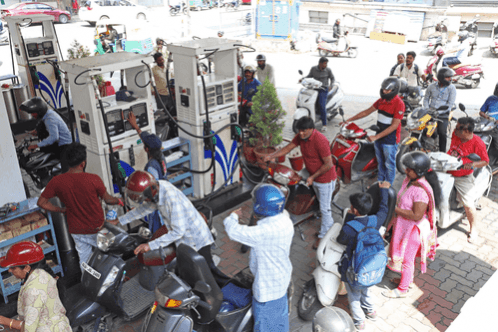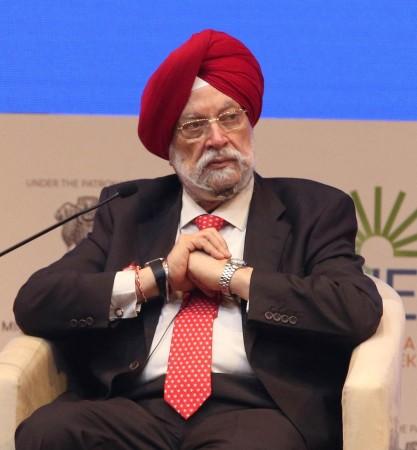
The Indian government has recently addressed concerns regarding the potential adverse effects of 20 percent ethanol blending (E20) in petrol, particularly on older vehicles and consumer experiences. The Ministry of Petroleum has issued a statement countering media reports that have raised alarms about the impact of ethanol blending on vehicles.
The ministry emphasized that these concerns are "largely unfounded and not supported by scientific evidence or expert analysis." It further stated that the narrative suggesting ethanol blending in petrol is detrimental to vehicles or causes undue hardship to consumers is "not based on real facts and lacks technical foundation."
International studies have been conducted to evaluate the impact of ethanol-petrol blends on the mechanical, energy, and environmental performance of vehicles. These studies involved testing carbureted and fuel-injected vehicles every 10,000 kilometers during their first 100,000 kilometers. The results indicated no statistically significant differences in power, torque, or fuel consumption.
Additionally, material compatibility and drivability tests conducted by the Automotive Research Association of India (ARAI), the Indian Institute of Petroleum (IIP), and Indian Oil Corporation (R&D) confirmed that legacy vehicles exhibited no significant variations, performance issues, or abnormal wear-and-tear when operated with E20. The ministry also noted that E20 fuel passed hot and cold startability tests without causing any engine damage.
Regarding fuel efficiency, the ministry acknowledged that ethanol has a lower energy density than petrol, resulting in a marginal decrease in mileage. This decrease is estimated at 1 to 2 percent for four-wheelers designed for E10 and calibrated for E20, and around 3 to 6 percent in others. However, the ministry highlighted that this marginal drop in efficiency can be further minimized through improved engine tuning and the use of E20-compatible materials, which leading automobile manufacturers have already adopted. The Society of Indian Automobile Manufacturers (SIAM) has confirmed that E20-compliant vehicles with upgraded components began rolling out from April 2023.
Therefore, the allegation that E20 leads to a drastic drop in fuel efficiency is factually incorrect.

Ethanol Blending: Safety and Economic Benefits
Safety standards for E20, including corrosion inhibitors and compatible fuel system materials, are well established through BIS specifications and Automotive Industry Standards. The ministry advised that the replacement of some rubber parts or gaskets may be necessary in certain older vehicles after prolonged use, typically after 20,000 to 30,000 kilometers. This replacement is inexpensive and can be easily done during regular vehicle servicing.
Ethanol has a higher octane number than petrol (108.5 compared to 84.4), which means that ethanol-petrol blends have a higher octane number than traditional petrol. As a result, the use of ethanol becomes a partial alternative for providing high-octane fuels (95), which are required for modern high compression ratio engines, thereby providing a better ride quality. The ministry further stated that E20 blending significantly strengthens India's energy security by reducing dependence on crude oil imports. Since 2014-15, India has already saved more than Rs. 1.40 lakh crore in foreign exchange through petrol substitution. Ethanol blending also supports the rural economy, with expeditious payment of over Rs. 1.20 lakh crore to farmers, thereby creating income and employment opportunities in the agricultural and biofuel sectors.
In addressing concerns around fuel efficiency, the ministry reiterated that the marginal decrease in mileage due to ethanol's lower energy density is limited to 1 to 2 percent for four-wheelers designed for E10 and calibrated for E20, and 3 to 6 percent in others. The ministry emphasized that this marginal drop in efficiency can be further minimized through improved engine tuning and the use of E20-compatible materials, which leading automobile manufacturers have already adopted. E20-compliant vehicles with upgraded components have been available since April 2023, according to the Society of Indian Automobile Manufacturers (SIAM).
On the issue of material corrosion, the ministry reassured that safety standards, including corrosion inhibitors and fuel system materials compatible with E20, are already in place under BIS and Automotive Industry Standards. The ministry advised that the replacement of some rubber parts or gaskets may be necessary in certain older vehicles after prolonged use, typically after 20,000 to 30,000 kilometers. This replacement is inexpensive and can be easily done during regular vehicle servicing.
The ministry defended the ethanol blending initiative as a step toward sustainability. Ethanol replaces petrol, a fossil fuel, and reduces CO2 emissions. The ministry outlined that India's ethanol program now sources feedstock from sugarcane, surplus rice, maize, damaged food grains, and agricultural residue. The post also highlighted the benefits of ethanol for engine performance, emphasizing its higher octane number (~108.5 compared to petrol's 84.4) and improved ride quality. Ethanol improves volumetric efficiency by lowering the intake manifold temperature, thereby improving overall engine performance in modern high-compression engines.
The government maintained that the benefits of E20 are multi-dimensional and scientifically supported, positioning it as a forward-looking and environmentally responsible measure for the country. The ministry dismissed concerns as "largely unfounded and not supported by scientific research or field data." The ministry emphasized that the narrative suggesting ethanol blending in petrol is detrimental to vehicles or causes undue hardship to consumers is "not based on real facts and lacks technical foundation."

















